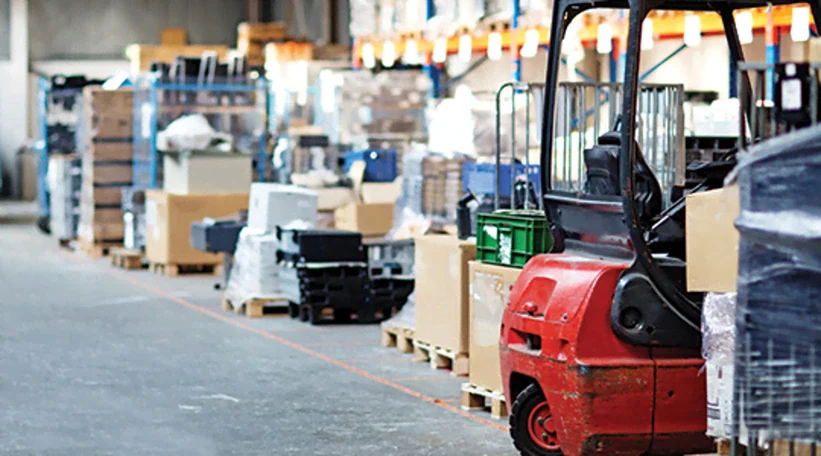Assessing the Impact of Fava Specialized Customs at Payam Airport
According to IDEA, The Fava Specialized Customs (Information and Communication Technology) is located at Payam Airport. On the 20th of Shahrivar month (September 11), a conference was held at Payam Airport.
In the recent conference, two panels were held with the participation of the private and governmental sectors, where both sides expressed their expectations of each other.
The main themes of this conference included: The role of air transportation and logistics in Fava Specialized Customs, the Payam Special Economic Zone as a hub for ICT goods exports and imports, examining the expectations and demands of the private sector from Fava Specialized Customs, and investment opportunities in the Payam Special Economic Zone.
The first panel, with the theme of the role of air transportation and logistics in Fava Specialized Customs, featured the presence of Mohammad Ahmadi, the technical and commercial deputy of the National Post Company of the Islamic Republic of Iran; Reza Khorsidizadeh, the director-general of customs in Alborz province; Mohammad Moteshareii, a member of the board of directors of Nasr Tehran; and Masoud Shokrani, the CEO of Jooya Group.
Expectations of Key Players in the Supply Chain of Goods
In the beginning, Shokrani addressed the concerns of key players in the supply chain of goods as missing links that need to be addressed today. He discussed these issues from a legal, regulatory, and customs perspective and said: “Apart from issues that affect all sectors, the IT sector is experiencing rapid changes. For example, goods entering the IT sector six months ago can no longer be easily sold.”
He continued by saying, “Unfortunately, sanctions prevent us from using Payam’s strategic position to its full potential. Payam Airport has a better strategic and geographical position compared to airports in Turkey and Dubai. If it weren’t for the sanctions, this region could have served as a hub connecting the East and the West.”
CEO of Jooya Group then highlighted another issue, which is the lack of training for assessors and employees at Payam Airport. He also mentioned other points such as the need for regular and planned flights at Payam Airport, the price stability of goods over time due to the time-consuming import process, and the necessity of coordination between other entities and Payam Airport.
Payam Airport Can Shorten Import Times
In the next part of the panel, Moteshareii discussed his points in four sections. In the first part, he addressed one of the most crucial issues for IT goods importers, which is simultaneous payment. He said: “The problem for economic operators is that the import process takes about six months. Transit of goods to Bandar Abbas, transit of these goods from Bandar Abbas to the desired province, and the allocation of currency for economic operators are all cumbersome processes and, at the same time, significantly prolong the return of capital.”
He continued, “But Payam Airport can significantly reduce this lengthy process. If we can have regular flights, the transit time from Bandar Abbas to Payam will be very short, and the customs clearance process at Payam Airport will also be easier. The point is that Payam Airport itself is a blessing, but the problem in flight planning needs to be addressed.”
He went on to discuss the logistics of goods, saying, “In this regard, we had a meeting with the National Post Company, and it was agreed that there should be a warehouse at Payam for easier shipment of parcels.”
The Distribution of Goods at the Final Price for Consumers Has a Significant Impact
In the following panel, Mohammad Ahmadi, Technical and Commercial Deputy of the Post Company, discussed logistics for goods and the role of retail logistics, stating, “In the global average, the distribution role in the product supply chain accounts for about six percent of the final price. If we look at the entire logistics chain, including the transport of raw materials and eventually delivering them to consumers, it will be around 15 or 16 percent. In our country, these statistics are twice as high. The role that distribution networks and postal networks play in the final price of goods is very significant.”
He also mentioned that customers in special economic zones expect their goods to be traceable and monitored, which is part of the global infrastructure used by international members.
The Technical and Commercial Deputy of the Post Company also stated, “In the world, customs services and processes are carried out by the postal service without physical presence. Therefore, there is a special interaction between the postal service and customs, sometimes taking the form of consultation.”
Ahmadi concluded, “Another issue, especially in this era of booming e-commerce, is the customer experience. In a unified model where all players fulfill their roles correctly and there are optimal regular flights, it helps more with economic processes.”
Differences Between Regular Customs and Specialized Customs
Khorshidizadeh, in the last discussion of the panel, explained the main differences between regular customs and specialized customs, saying, “In line with the government’s policy to provide quality services, the Islamic Republic of Iran Customs Administration has committed itself to move customs towards specialization, and in this regard, Payam Airport has been introduced as the specialized customs for ICT.”
He continued, “A regular customs officer cannot provide insights into specialized items like IT products, and when customs move toward specialization, every customs office will receive the necessary training within its field of activity. In specialized customs, we create knowledge about the goods that are the main imports, which facilitates the clearance of goods.”
The Director-General of Alborz Customs also added, “In other customs, the examination of goods is done by authorized experts virtually from all over the country, but in the special economic zone of Payam Customs, these experts are physically present at the airport, which greatly helps facilitate the clearance of goods.”
He further stated, “Goods entering the Payam Special Economic Zone through air cargo are immediately processed for customs clearance.”
Khorshidizadeh also discussed the transit of goods through Payam Airport, mentioning that goods can be transferred to the transit phase after entering Payam Airport.





No Comment! Be the first one.